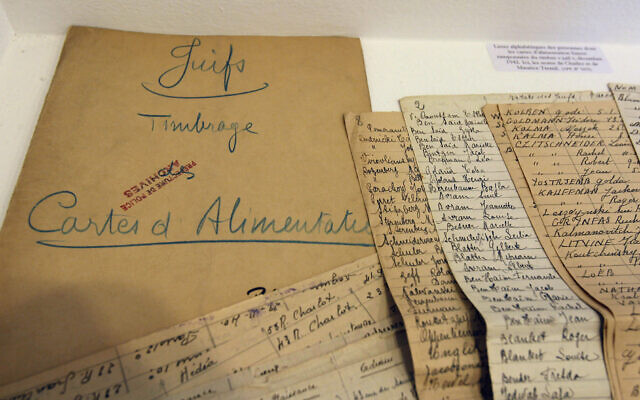
A trove of religious artifacts stolen from Jewish synagogues and homes in Europe during the Holocaust are now in the hands of U.S. authorities who plan to return them to their communities of origin.
The authorities announced this week they had recovered 17 funeral scrolls, manuscripts and other historic records that were to go on auction in New York City. The items were traced to Jewish communities in Romania, Hungary, Ukraine and Slovakia that were ransacked during Nazi rule in World War II, federal prosecutors in Brooklyn said in a statement.
Acting U.S. Attorney Jacquelin Kasulis said they “contain priceless historical information that belongs to the descendants of families that lived and flourished in Jewish communities before the Holocaust.”
The auction house, Kestenbaum & Company, said it had cooperated with authorities. The sale involved a private collector known for trying “to rescue and preserve Jewish historical documents that would otherwise have been lost,” it said in a statement provided Friday.
When provenance claims were raised, the World Jewish Restitution Organization was consulted, “after which we withdrew the property from the proposed auction,” the statement added.

The case has its origins from an era when members of the Jewish communities were banished to ghettos, robbed of their belongings and deported to Nazi death camps, court papers say. When survivors returned, they found their homes emptied of anything of value, including records dating from the mid-19th century.
When the auction was scheduled, a researcher spotted that it included a forgotten relic from the city of Cluj-Napoca in Romania — a bound registry of burials between 1836 and 1899. It had an estimated value of up to $7,000 and was described as a “manuscript written in Hebrew and Yiddish … with elaborate, artistic title-page poetically extolling the three leaders of the Burial Society,” court papers said.
The researcher, Robert Schwartz, told The New York Times earlier this year that it was a rare find worthy of proper preservation as a local museum exhibit.
“Very little belonging to the community survived World War II,” Schwartz said. “It’s surprising that the book surfaced at auction, because no one knew anything about its existence.”
(AP)
Source: TheYeshivaWorld